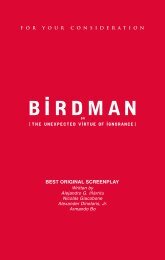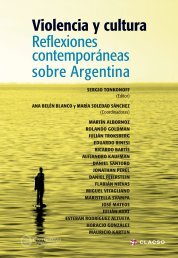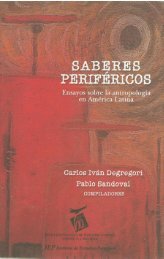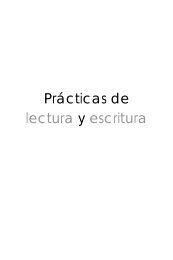blueprints
blueprints
blueprints
You also want an ePaper? Increase the reach of your titles
YUMPU automatically turns print PDFs into web optimized ePapers that Google loves.
46 | anna deavere smith<br />
After all I have said about the possibility that was reawakened in me<br />
when I wrote and performed Fires in the Mirror, I will give here a word of<br />
caution. The play, in terms of mirroring community and bringing community<br />
together, was enormously successful. But did I change any opinions or<br />
beliefs at the epicenters? Did I change opinions or behaviors of any<br />
Lubavitch? Did I change opinions or behaviors of black activists? Unlikely.<br />
On opening night, Roz Malamud, quoted above, came to see the play. She<br />
was very excited by it. When the reviews came out she called me at my<br />
home to congratulate me and to invite me to her home for “a nice kosher<br />
meal.” A year after the play opened, I was invited to perform the play in a<br />
theater quite near Crown Heights. Blacks and Jews from the community<br />
attended, including black leaders and key rabbis. The brother of Yankel<br />
Rosenbaum, Norman Rosenbaum, who is depicted in the play, attended.<br />
The accomplishment there is that blacks and Jews sat side by side in the<br />
theater. However, I would never say that I changed any minds—I am not<br />
certain of and cannot account for change at all. When 60 Minutes took me<br />
back into the neighborhood to do a profile on my work, Roz Malamud,<br />
who had privately called me from time to time to invite me to come to her<br />
home (for her grandson’s bris, for example), said of me on national television,<br />
“What does she know? She’s not from here.” So, it seems, Roz and I<br />
have to agree to disagree. But at least we are talking. And maybe that’s<br />
something.<br />
Did my speaking the language night after night, inside darkened theaters<br />
around this country, and in Australia and London, change anything? To<br />
answer this question, one would have to chronicle the behavior of audiences,<br />
once dispersed back into communities and their workplaces. Did it<br />
change their voting, their purchasing, their imagining, their relationships?<br />
Likewise in Los Angeles, when I performed Twilight: Los Angeles, about<br />
the Los Angeles riots and the hostilities between communities and those<br />
who policed the communities, I succeeded in bringing communities into<br />
the theater. I broke box office records. But did I change anything? The process<br />
itself broke holes in big walls—my own walls included. One of my<br />
muses was a gang member—Twilight Bey was his name. I interviewed over<br />
three hundred people: a gang member on the one hand, a patrician, southern<br />
aristocrat who was editor of the Los Angeles Times on the other. One of<br />
the police officers who had beaten Rodney King met with me. I met with<br />
jurors from both trials, including a juror from the jury that voted not to







